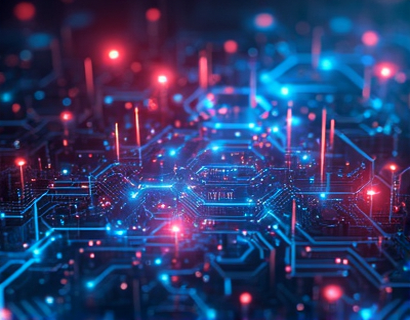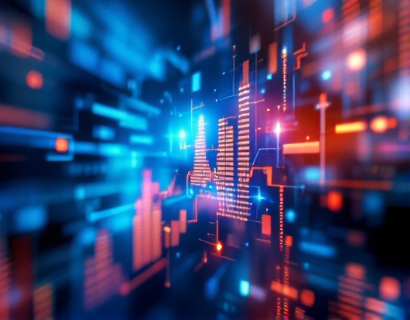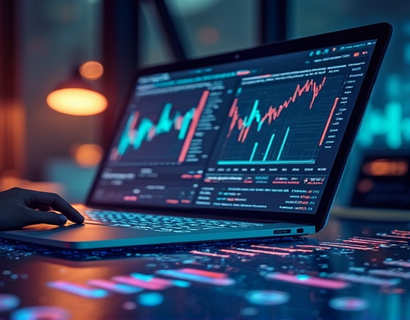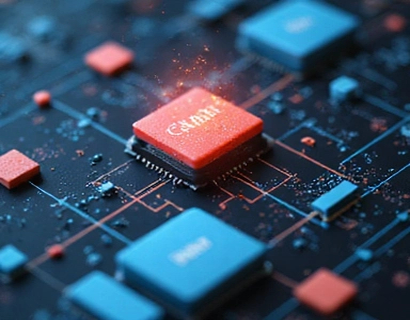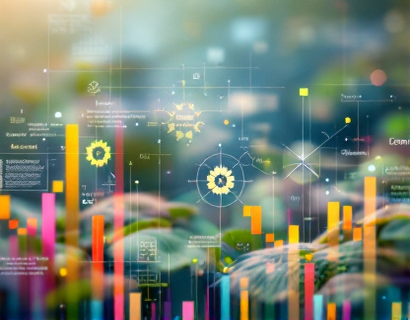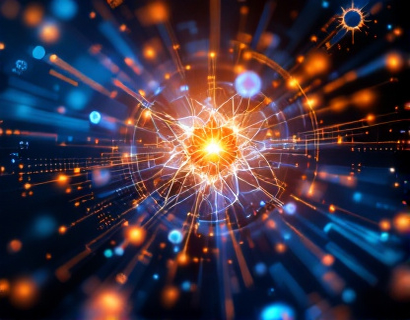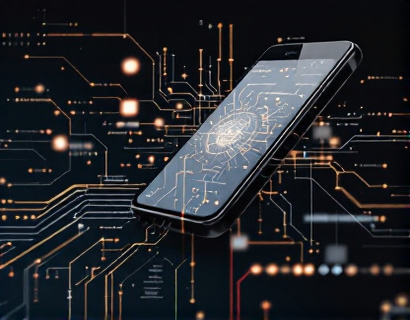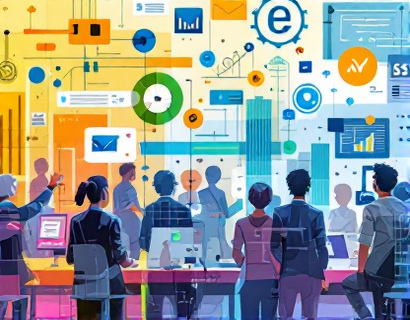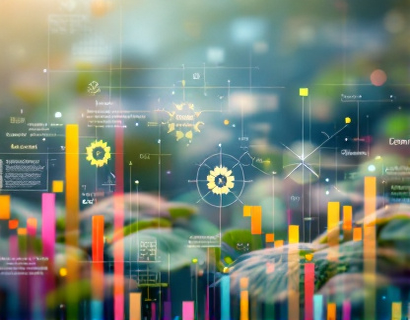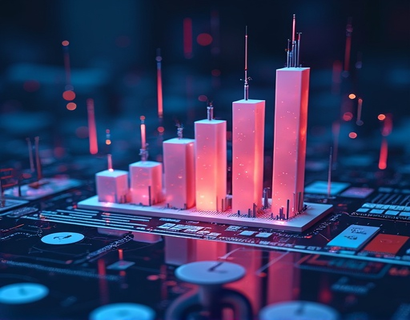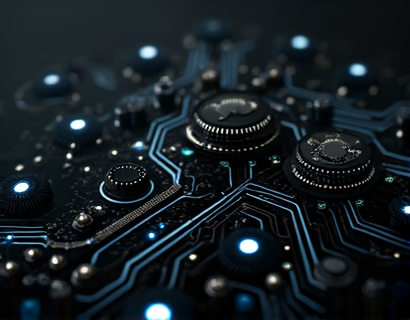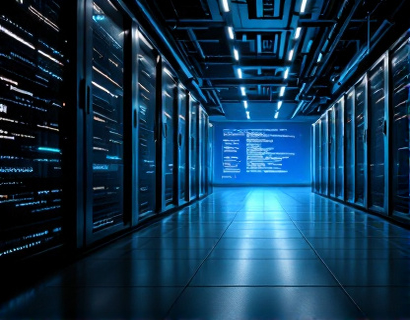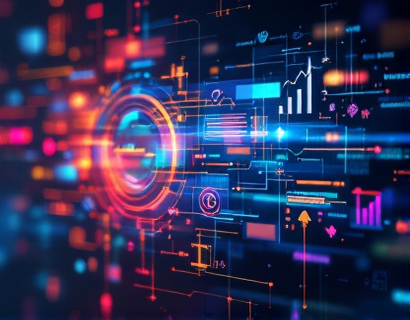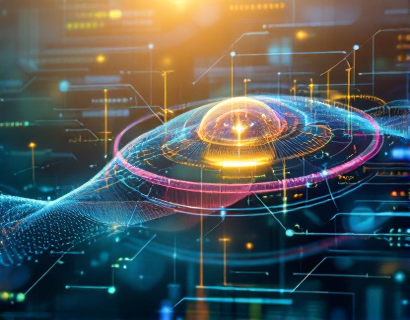Exploring the Synergy of Crypto and AI: Pioneering Digital Innovation
The intersection of cryptocurrency and artificial intelligence represents a frontier of technological advancement, promising to redefine digital experiences through the integration of advanced algorithms and blockchain technology. This convergence is not merely a trend but a transformative force that is reshaping industries and creating new paradigms for innovation. As tech enthusiasts and early adopters, understanding the dynamics and potential of this synergy is crucial for anyone looking to navigate the future of digital technology.
The foundation of this synergy lies in the unique properties of both cryptocurrency and AI. Cryptocurrency, with its decentralized and secure nature, provides a robust framework for transactions and data management. AI, on the other hand, brings the power of machine learning, natural language processing, and predictive analytics to the table. When combined, these technologies can create systems that are not only more efficient and secure but also capable of learning and adapting to complex environments.
Enhanced Security through Blockchain and AI
One of the most significant benefits of merging crypto and AI is the enhancement of security measures. Blockchain technology, the backbone of cryptocurrencies, ensures transparency and immutability in transactions. AI can further bolster this by detecting and mitigating potential security threats in real-time. Machine learning algorithms can analyze patterns and anomalies in transaction data, identifying suspicious activities that traditional security systems might miss. This proactive approach to security is essential in an era where cyber threats are becoming increasingly sophisticated.
For instance, AI-driven systems can monitor blockchain networks continuously, learning from past attacks and adapting to new tactics used by malicious actors. This dynamic defense mechanism ensures that the integrity of the blockchain remains intact, fostering trust among users and stakeholders. Moreover, AI can enhance the privacy of transactions through advanced encryption techniques, ensuring that sensitive information is protected from unauthorized access.
Optimized Smart Contracts with AI
Smart contracts, self-executing contracts with the terms directly written into code, are a cornerstone of blockchain technology. However, their efficiency and functionality can be significantly improved with the integration of AI. AI can optimize smart contracts by analyzing vast amounts of data to identify inefficiencies and potential vulnerabilities. This analysis can lead to more robust and adaptable contract designs that can respond to changing conditions in real-time.
For example, AI can help in automating the execution of smart contracts based on predictive analytics, ensuring that conditions are met with high accuracy. This not only reduces the risk of errors but also speeds up transaction processes. Additionally, AI can facilitate the creation of more complex and sophisticated smart contracts, enabling a wider range of applications in areas such as supply chain management, real estate, and finance.
Personalized User Experiences through AI and Crypto
The combination of AI and cryptocurrency can also revolutionize user experiences by providing highly personalized services. AI algorithms can analyze user behavior and preferences, leveraging this data to offer tailored recommendations and services. In the context of cryptocurrency, this means creating financial products and services that are finely tuned to individual needs and risk profiles.
For instance, AI-driven platforms can offer customized investment portfolios using cryptocurrency assets, adjusting the asset allocation based on market trends and user preferences. This level of personalization not only enhances user satisfaction but also increases the adoption and utility of crypto-based services. Furthermore, AI can facilitate seamless interactions with these services through natural language interfaces, making the user experience more intuitive and accessible.
Decentralized Finance (DeFi) and AI
Decentralized Finance, or DeFi, is an emerging field that leverages blockchain technology to create financial systems without traditional intermediaries. AI plays a crucial role in enhancing the capabilities of DeFi platforms. By integrating AI, DeFi can offer more sophisticated lending, borrowing, and trading services, all while maintaining the core principles of decentralization and transparency.
AI can improve risk assessment and credit scoring in DeFi, enabling more accurate evaluations of borrower creditworthiness. This can lead to more inclusive financial services, as individuals with limited access to traditional banking systems can benefit from AI-driven assessments. Additionally, AI can optimize liquidity management in DeFi protocols, ensuring that funds are allocated efficiently and effectively, reducing the risk of market volatility.
Supply Chain Optimization with Blockchain and AI
Supply chain management is another area where the combination of blockchain and AI can drive significant innovation. Blockchain provides a transparent and immutable ledger for tracking goods from production to delivery, while AI can analyze this data to optimize various stages of the supply chain. This synergy can lead to more efficient, transparent, and resilient supply chains.
AI can predict demand patterns, optimize inventory levels, and identify bottlenecks in the supply chain, all based on real-time data analysis. Blockchain ensures that this data is secure and tamper-proof, building trust among all parties involved. For example, in the food industry, AI and blockchain can track the origin and journey of products, ensuring food safety and quality. This level of transparency can also help in reducing waste and improving sustainability practices.
Challenges and Considerations
While the potential of combining cryptocurrency and AI is vast, there are several challenges and considerations that need to be addressed. One of the primary concerns is the regulatory landscape. As both crypto and AI are relatively new and rapidly evolving fields, regulatory frameworks are still catching up. Ensuring compliance with existing laws while advocating for supportive regulations is crucial for the sustainable growth of these technologies.
Another challenge is the technical complexity involved in integrating AI with blockchain systems. Developing robust and scalable solutions requires expertise in both domains, which can be a barrier for many organizations. Additionally, there are concerns around data privacy and the ethical use of AI, particularly in the context of sensitive financial data. Addressing these issues through transparent practices and robust security measures is essential.
Future Prospects and Innovations
Looking ahead, the future of crypto and AI holds immense potential for further innovation. One exciting area is the development of AI-powered decentralized autonomous organizations (DAOs), which combine the autonomy of blockchain with the decision-making capabilities of AI. These DAOs can operate with minimal human intervention, making them ideal for managing complex projects and communities.
Another promising direction is the integration of AI with quantum computing, which could revolutionize the processing power available for blockchain transactions and AI computations. This could lead to breakthroughs in areas such as cryptography, optimization, and complex data analysis. Additionally, the rise of Web3, a decentralized internet powered by blockchain and AI, promises to create a more equitable and user-centric digital ecosystem.
In conclusion, the convergence of cryptocurrency and AI is not just a technological trend but a transformative force that is reshaping the digital landscape. By leveraging the strengths of both technologies, we can create more secure, efficient, and personalized systems that enhance user experiences and drive innovation. As we continue to explore and develop these synergies, the possibilities for the future of digital technology are truly limitless.





